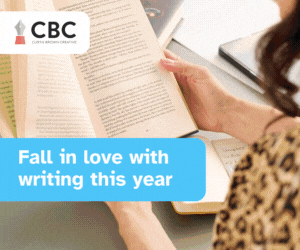Ann Evans: Hints & Tips For New Writers #14
27 June 2021

No one likes writing a synopsis. But unfortunately, if you’re writing a novel, a play or a serial, you’re going to be asked to produce a synopsis. So rather than dreading it, try thinking of it as the first step to getting your work accepted. Think of the synopsis as your friend!
This isn’t as silly as it sounds. The synopsis is basically putting your story in a nutshell. And by doing this, you’re actually creating a clearer image in your own head. If you can’t explain your story in a nutshell, then perhaps you don’t know it well enough yourself. So, time perhaps to do more thinking and planning. In fact, if you do feel that trying to finish your book is like wading through treacle, it might be because you don’t really know where it’s going.
Writing a synopsis will also help you understand what the theme of your work is. Sometimes you don’t understand your theme until the story is completed. For others, the theme might be the starting point – you know you want to write, say, a rags to riches story, or a love conquers all story; so your characters, plot and setting will emerge from this theme. If this isn’t happening for you, then writing a synopsis will help define exactly what it is you are writing.
People possibly get hung up on the idea of writing the synopsis because there are no clear guidelines regarding the length or what exactly is required. Some editors want short one-page synopses and some want more detailed ones. Looking back at my own synopses, I found in my files a 19-page synopsis for my two follow-up stories to The Beast. I can’t recall if I sent this document to my publisher, Usborne, or whether I honed it right down, but I could see my own logical thinking in writing it. I was explaining to the publisher and to myself what was going to happen in the story.
Writing the synopsis can help you move forward
I’m not suggesting you write a synopsis that long to send into a publisher. But I would certainly suggest you do this for yourself. Don’t worry about writing it well, simply say – and this happened, then that happened etc. It’s for yourself. Don’t labour over your writing skills at this point. Print it off, pin it to your wall. It’s going to help you to write your masterpiece.
Once you have this long outline, you will be able to envisage the different scenes needed. Colour with a highlighter pen each scene that you complete (even if just the first draft of that scene). Your 19-page (or whatever length) document pinned to the wall, will gradually start to become a colourful wad of A4. You will actually be able to see the progress you are making. And as you plan your busy day, you’ll be able to give yourself the challenge of say, writing the next scene on your list; or the next two scenes. You’ll find great pleasure in getting out your colourful highlighter pens and choosing the colour for the day!
Why do publishers need a synopsis?
Publishers need to quickly see and understand the outline of the story. From this they will know whether or not they’d like to publish it. Get them interested and they will read your opening chapters. Some editors read the synopsis last. They prefer to see the style of writing first. If that doesn’t please them, then what’s going to happen will be neither here nor there!
For a publisher to accept your story, they need to be certain that it is right for them and that it will slot nicely into the genres that they publish. So, it’s important to tell them straight away, either at the very start of your synopsis or in your covering letter, what it is you are offering them. Provide a brief sentence or two saying what it is and what genre it is. For example, my book, Celeste: Celeste is a young- adult, time slip thriller set in modern day and Medieval Coventry. You could say the word length also.
What to put into your synopsis to an editor
The synopsis should be a simple straightforward account of what happens in your story – but only the most important events. So, say who the main character is, where and when the story is set; highlight the major goals and obstacles that character has to face. Reveal what the consequences are should he/she fail to overcome these problems. Express the emotional journey your protagonist endures before reaching their goal. Say how the story ends.
If you didn’t already know what your theme was, this alone should make the theme shine through.
Writing that synopsis
The main point about the synopsis is to let the editor know what the story is about. So what you write needs to be simple, brief and clear. You wouldn’t go far wrong in writing your synopsis in the format of: beginning, middle and end. My books for reluctant readers require a one-page synopsis showing just that – beginning, middle and end. Sometimes, my one pager runs into two, but that hasn’t affected their decision to accept or decline my ideas.
So, you’re ready to start writing that actual synopsis to send to a publisher…Well stop! I’ve a better idea! Forget you’re writing a synopsis to an editor. Tell yourself you’re writing a letter to your best pal – or your partner, or your next door neighbour. Write about your story in your own normal way of telling a story. You know from my notes above what you need to put in – those major points, the problems, the most important scenes, how your character is feeling throughout all this action, and how it all ends.
When you’ve done your letter to your pal or pet, remind yourself that they’ll only have a few minutes to read it, so go over it, remove the padding, remove the bits that aren’t really that necessary. Now go over it again and see if it makes sense. Will your friend understand what’s going on by what you’ve told them? Tweak it until there’s a crisp and clear outline of your story.
Check it again for spelling, punctuation. Probably short sentences will read better than rambling ones. Happy with it? Read it aloud and double check. Look at the presentation – is it looking good? Is it looking professional? Great! Then send it off to your best pal… no, sorry, send it off to that editor. Who knows, she might even become your best friend.


